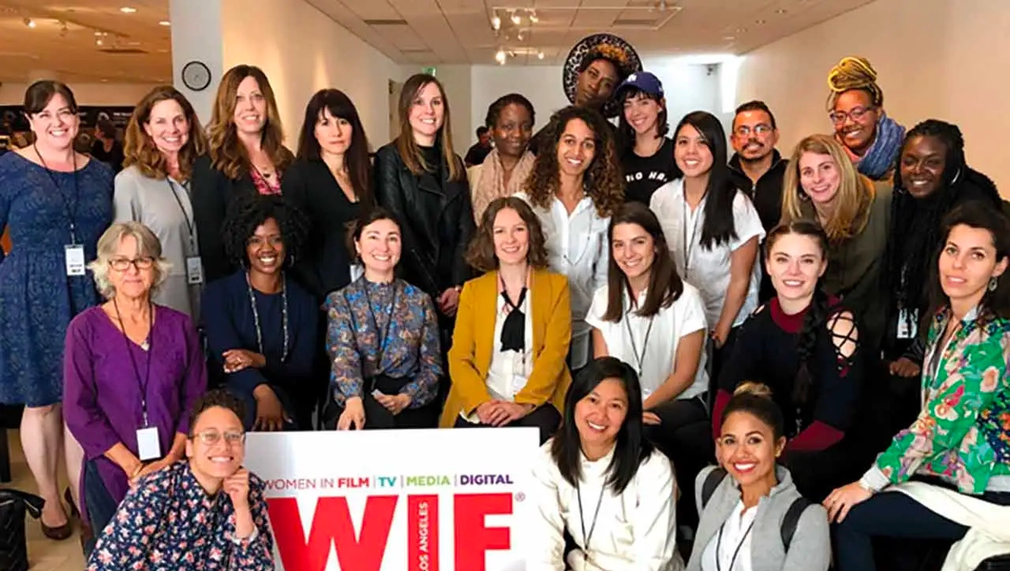Pathways for Female Screen Industry Entrepreneurs
Women-owned businesses in Hollywood access 7X LESS funding than male-owned businesses. To address this gap, WIF will deliver financial literacy and entrepreneurship programs for budding and established female screen industry entrepreneurs. Educational courses will advance skill sets for women and gender expansive people launching production companies, as well as the many freelance creatives in the industry across roles like director, writer, cinematographer, editor who must run their own businesses in order to work and advance their careers.

What is the primary issue area that your application will impact?
BIPOC- and Women-Owned Businesses
In which areas of Los Angeles will you be directly working?
County of Los Angeles
In what stage of innovation is this project, program, or initiative?
Pilot or new project, program, or initiative
What is your understanding of the issue that you are seeking to address?
In 2021 WIF commissioned a first-of-its-kind study by Alicia Jessop (Pepperdine Univ) looking into the experiences of female screen industry entrepreneurs when accessing capital. It was inspired by the experiences of WIF board members who despite their vast successes each could not secure outside funding for her entrepreneurial endeavor. The study found that on average, men-owned screen industry businesses receive SEVEN times more funding than those owned by women. It identified four barriers women face that contribute to this outcome, including a lack of self-confidence in their own abilities to structure financing, compete for funding and ask for the capital they need. Women entrepreneurs need resources to come equipped to the negotiating table, win funding, and shift power dynamics in the screen industries. Hollywood is a creative industry driven by financial capital; true gender equity will only be achieved once both the creative and economic sides of the equation are addressed.
Describe the project, program, or initiative this grant will support to address the issue.
To address this disparity, WIF will program educational workshops to build confidence and competency for female and gender expansive business owners in the screen industries. WIF will host 6-8 digital sessions to expand financial literacy, covering topics like: -how to structure and ask for capital -running your business as a freelancer -creating networking roadmaps and connecting with potential financiers Through these trainings, early and mid career professionals will gain the skills and confidence to secure their existing businesses, pursue entrepreneurial endeavors and win new sources of funding. Through education we aim to confront the risk-factor associated with entrepreneurship that often keeps women on the sidelines. Half of the sessions will be targeted to the 74 WIF Fellows who are selected to receive intensive mentorship from WIF each year. These female and nonbinary creatives are majority people of color from all backgrounds and abilities, across various roles including writers, directors, producers, editors, and cinematographers. Half of the sessions will be open to the public and reach a wide audience of diverse female and nonbinary screen industry entrepreneurs. This will be WIF’s first initiative addressing the study’s findings under a new banner of programming called Entrepreneurial Pathways. Additional programs will follow to combat the disparate distribution of capital and address the other three barriers identified in our research.
Describe how Los Angeles County will be different if your work is successful.
WIF is a fifty-year-old organization with deep ties to the diverse communities of Los Angeles. Our ultimate goal is an entertainment industry that reflects the population in front of and behind the camera. This program will shift the distribution of money and power in one of Los Angeles’ largest industries so that historically underrepresented people have equal access to funding, capital, investment and in turn, opportunity. If we are successful, Los Angeles will boast the nation’s largest and most diverse screen industry workforce. The sector will reflect an inclusive and equitable distribution of capital. More women and gender expansive people, in particular people of color, will own a percentage of businesses in the screen industries. Barriers that have historically kept women from starting their own businesses will crumble, as the Los Angeles’ business community will encourage expansive investment for women and nonbinary people, in turn promoting creative and economic prosperity.
What evidence do you have that this project, program, or initiative is or will be successful, and how will you define and measure success?
While this program is new and designed in response to our research findings, WIF has a rich history of programming educational sessions for our Fellows and members, including workshops to increase their capacity as storytellers and to build sustainable artistic careers. Our goal is for women and nonbinary people to access more capital and own a higher share of screen industry businesses. To track progress against this goal, we will track event audience size, engagement, and conduct surveys to measure changes in confidence and literacy coming out of the sessions. We will ask: do participants feel more financially literate and more empowered to seek funding after the sessions? We currently track the successes of individual WIF Fellows and how their careers/projects advance coming out of our programs. We will also track their financial trajectories, e.g. investments raised for their production companies and the size of deals they secure, to the extent they feel comfortable sharing.
Approximately how many people will be impacted by this project, program, or initiative?
Direct Impact: 1,060
Indirect Impact: 4,000